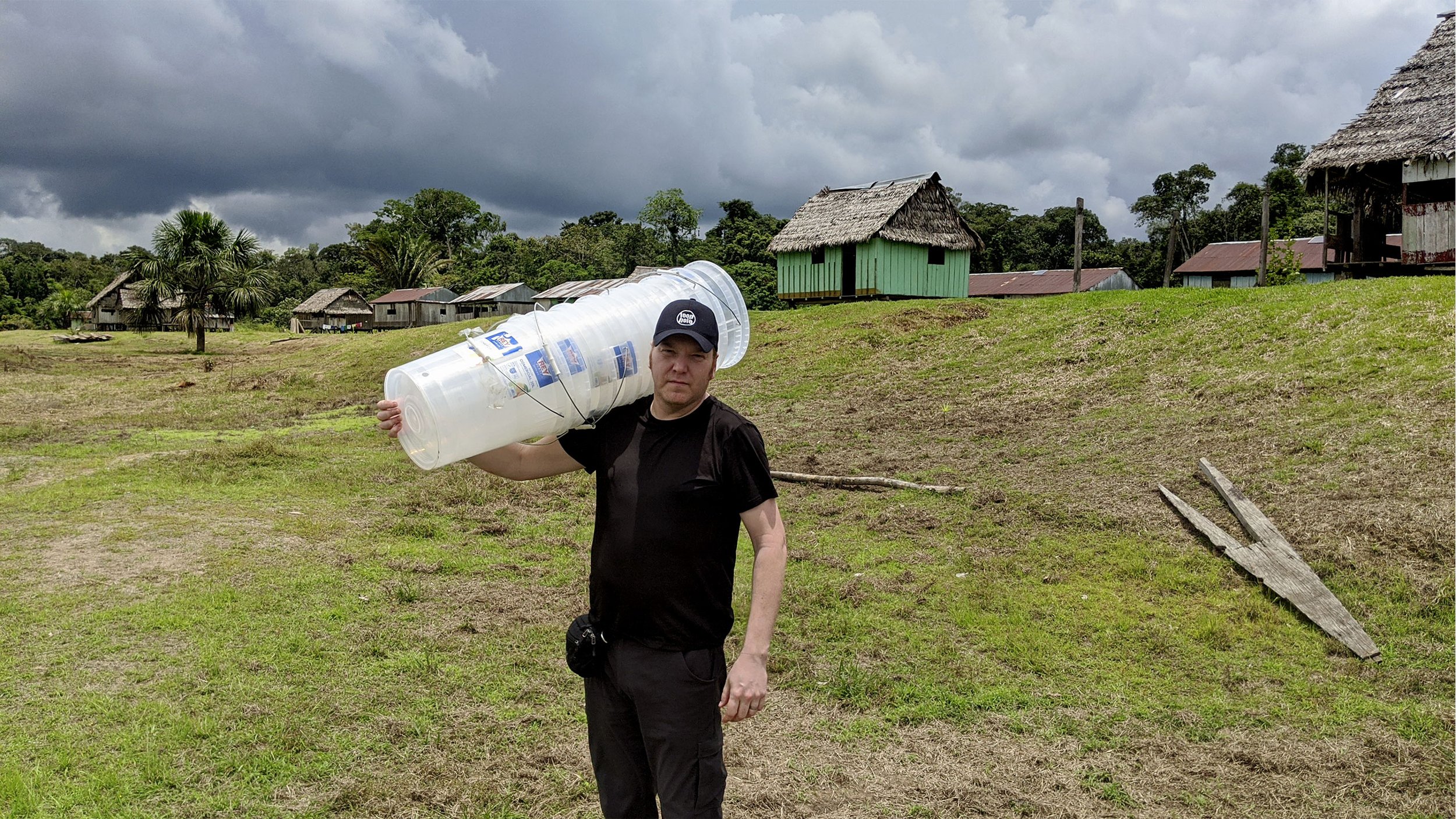Water For Life Grant
The Water For Life project grant, sponsored by the Rotary Club of Boulder Flatirons, set out to improve the health and well-being of people living in impoverished situations in remote areas of the Amazon. The grant funds provided safe drinking water through the distribution of water filtration systems. Systems were delivered where larger infrastructures and complex systems are less effective. Future plans include testing for continued water safety.
©2020 Photo by Rob Miller
In February of 2020, Rob Miller, owner of Loophole, and Roger Cabbage, the Founder of Global Access 2030 (GA2030), traveled to the Amazon rainforest to educate, distribute, and test low-cost water filter systems. Loophole is proud to support GA2030’s mission: To contribute to the United Nations sustainable development goal 6.1, ensuring all people worldwide have access to safe and affordable drinking water and sanitation by 2030.
The current water filtration system is based on several years of Roger’s first-hand experience and recent design research of Rob Miller. Throughout their travels they encountered filters that were rendered ineffective from hash reality of water conditions, improper maintenance, loss of parts, and contamination.
©2020 Photo by Rob Miller
The water filter systems were delivered through six educational workshops that gathered community leaders and families of remote villages along the Amazon and Napo Rivers in Loreto Peru. The workshops explained the importance of safe drinking water prior to guiding families through the assembly of the filter systems. The assembly of the systems builds a stronger sense of ownership and a level of comfort with operational maintenance. These workshops provided the knowledge and tools for families to produce safe drinking water for their families to reduce the health issues associated with drinking contaminated water and/or water overly treated with bleach.
©2020 Photo by Rob Miller
From this grant, over one hundred families are equipped to produce safe drinking water within these remote villages. We estimate the impact to provide safe water to five hundred individuals for over two years.
To assure effectiveness, the filter systems are regularly sampled and tested. Since travel to these villages is infrequent and beyond the reach of typical NGO’s, we set up a multi-layered contact system involving the local Rotary club, a hospital with a proven outreach program, and a local non-profit supporting conservation, education, and health initiatives. All of these groups have been trained to support the use of these filter and can assist with interim evaluation, maintenance, and repair.
©2020 Photo by Rob Miller
During the first trip of this grant, Rob and Roger visited five locations to conduct interviews and bacterial tests on filter systems that were distributed several months prior. During subsequent trips, the team will be testing the units recently distributed to assure not only filter effectiveness, but also validate if families are properly adapting to new water routines.
The design challenge is not the act of filtering water efficiently, but creating a system that seamlessly integrates with daily cultural routines, common know-how, and health beliefs.
It is not simply delivering a universal ‘fix’—It is our goal to listen and gain a deep understanding of personal challenges.



